New in the autumn elections in Russia
In Russia, elections are held twice a year in spring and autumn, and citizens elect deputies, municipal, city and regional legislative assemblies, mayors, governors, and the president.
In Russia, after the collapse of the Soviet Union, there is a collapse between the two forms of legitimacy according to John Locke: between the charismatic, revolutionary persona of the leader and the legal, secured democratic procedure.
The collapse leads to the fact that the government applies that imitation of democratic elections, then mobilizes the population to exploit to strengthen power.
As a result, only in 16 cities there are elections of mayors, in the fall they took place at eight eight. The number of cities that have the right to choose decreases every year. This year, a huge metropolis of Yekaterinburg lost the freedom of choice of the mayor of the city.
The same goes for the governors. Yeltsin, having seized power, first appointed all governors, then resolved the elections. But thanks to various PR technologies, many governors actually came to the seats for decades. Turning the provinces into their feudal fiefdoms, conducting a sweep of political space from competitors.
After Putin came to power, first the election of governors was canceled, the president began appointing his loyal people to control the resources. Then again, elections were introduced in response to citizens' protests in 2011-2012. But by that time the political space was again cleared of competitors, a system of vote fraud was launched everywhere, and people who were dependent on budget financing were brought to the polling stations.
A municipal filter was introduced for the candidates, with the help of which the competitive candidates were eliminated from the non-systemic opposition. This event was used by political technologists to convince independent citizens of the budget not to go to vote, the line "against all" was removed from the ballots.
As a result of these manipulations to the elections, mostly people who were dependent on budget funding came and voted on the orders of their superiors. Independent citizens did not see their representatives, thanks to the municipal filters that cut off candidates from the non-systemic opposition. As a result, fictitious elections were held according to the plan of the Kremlin without any surprises.
The turning point came in 2012. After the protests the authorities began to perceive themselves as illegitimate. At first there was an attempt to play in democracy and in the elections of the mayor of Moscow in 2013, passed through the municipal filter of the opposition politician Alexei Navalny. The election result for the Kremlin was stunning: Alexey scored 27.24% of the vote of Muscovites. And this is taking into account the falsification in favor of the opponent!
Legitimacy through democratic procedures, even with the use of falsifications, failed completely. Then the Kremlin began to return to savagery and made an attempt to restore legitimacy through the charisma of Putin. This is the main reason for the seizure of the Crimea, the unleashing of war in the East of Ukraine and the incitement of the conflict in Syria.
The authorities told the public: we can not ensure your welfare as a result of the economic crisis in Russia, but we can ensure your safety. Rejoice, and do not try to change the power.
At first it was a success, but empty purses gradually began to eat euphoria, along with that the legitimacy of the Kremlin began to go away. Unfortunately, the old dog can not be taught new tricks and this affected the change in the conduct of elections.
Elections of the Mayor of Moscow in 2018
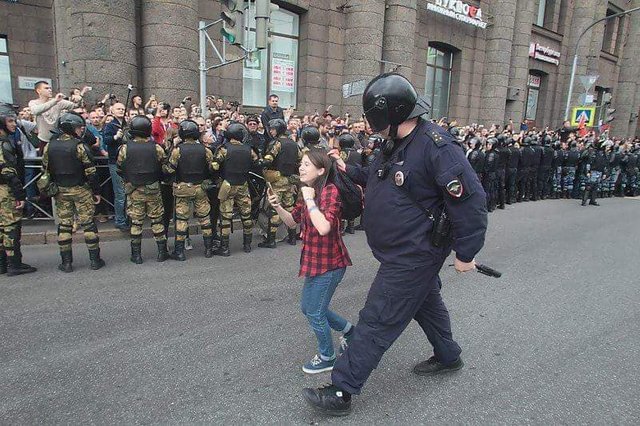
After the election of the mayor of Moscow, the State Duma and the Russian president, waves of discontent arose among the citizens. The fact is that statistical analysis using the Gauss curve easily shows a deviation from the norm of the distribution of votes during ballot rigging and falsification of the protocols of election commissions.
This analysis has been done for many years by Sergei Shpilkin, his work has become known to a large number of citizens, thanks to social networks and independent journalists.The discontent of citizens forced the government to tighten the municipal filter, thanks to which no candidate from the non-systemic opposition managed to become a candidate for the post of the mayor of Moscow. In response to the violation of electoral rights, citizens ignored the elections. Heads of budgetary institutions and enterprises forced their subordinates to come to the elections.
As a result, voter turnout was extremely low, only 31.28% of the total number of voters.
The schedule was kindly provided by Sergey Shpilkin.
For comparison, the election of the mayor of Moscow in 2013, the anomalies are completely insignificant:
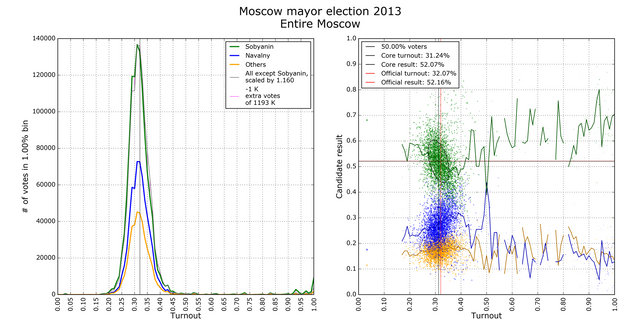
According to his data, there were very few statistical deviations in the election of the mayor of Moscow in 2018, except for a small jump at the end of the schedule. It is shown here that in some election commissions staff members still did not restrain themselves and made minor falsification.
Another thing is the election of the governor of the Moscow region, here the election commissions have arranged the maximum falsification of the votes of the voters:
The schedule was kindly provided by Sergey Shpilkin. An anomalous zone of deviation from the normal statistical error is shaded in orange lines on it, meaning a massive falsification of the election, thanks to which the governor of the Moscow region Vorobyov again became governor.
So, we have three tendencies: drying voters turnout, only dependent people, only stopping electoral fraud on a mass scale, and squeezing the municipal filter to prevent candidates independent of power.
Regional elections in 2018
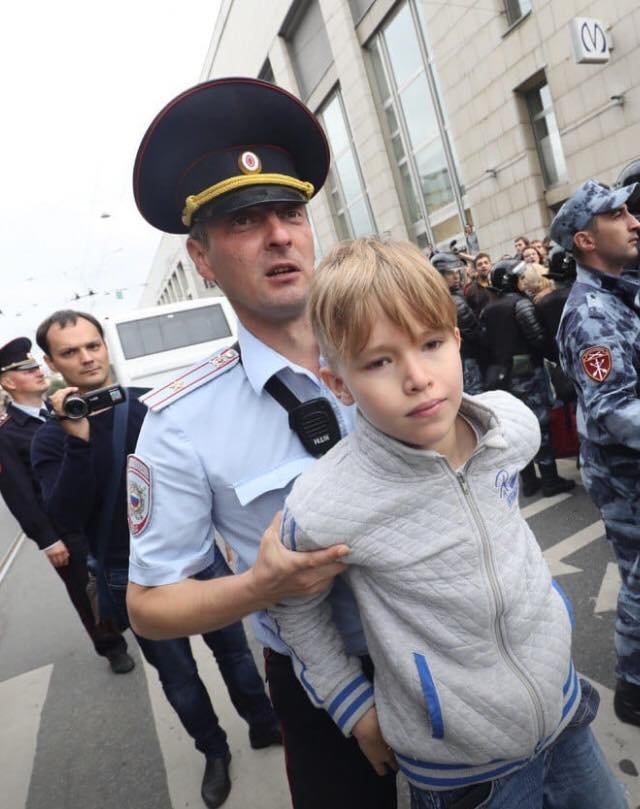
Approximately in 2011, three fundamental shifts in the Russian life began to infiltrate.
First, a slow, difficult and hardly reversible turn from paternalism to self-respect of citizens began. This is due to a number of reasons. After the reforms of 1992, a layer of people independent of the state, relying on their own initiative, rather than on budgetary financing, appeared.
Secondly, a left turn was initiated as a result of the economic crisis in Russia, the impoverishment of the population against the backdrop of sustained economic growth in developed countries. The main reason was the concentration of power and wealth in the hands of 160 000 families of Russian citizens who seized the distribution points of hydrocarbon rent and budget financing.
The polarization of wealth and poverty always presses up the same idea: to take away and divide all the riches among themselves, so the left turn becomes inevitable.
The third fundamental trend is the violation of the meritocratic principle of public administration. The more active the power polish the political space, the less competition. Management of the country plunges into a viscous swamp. Relatives of superiors are appointed to positions where decisions are taken, in the absence of competition. They are in an environment isolated from reality and management safely breaks from the challenges of life, degrades, getting into an inflated, self-contained, isolated bubble.
This bubbling marsh gets rid of people with ideas, frank idiots come to the surface who are not capable of either analyzing reality or making adequate decisions.
So PR technologies did not allow non-systemic opposition to regional elections, which could smooth out the struggle of the system opposition - the Communists and the LDPR. United Russia would then have the last chance to get a majority of votes in regional legislative assemblies. But the mind has not been able to make calculations from the statistical point of view already in the regional administrations, with a rare exception, which can be attributed to a random error.
In the first 18 years, Putin spoke on TV and asked to support United Russia and the governors from this party, using his charisma, but this did not help. The train with paternalism and legitimacy through charisma left Russia, most likely for good.
In Rostov, Smolensk, Yaroslavl, Vladimir, Ivanovo, Irkutsk, Ulyanovsk regions, Trans-Baikal Territory, Buryatia and Khakassia, the system opposition - communists and LDPR - won in parliaments.
This is the most deafening failure of Putin for all 18 years.
At first glance, nothing happened, the lured systemic opposition won, which is a kind of subdivision of the United Russia party. In each region, curators from the Kremlin distribute resources and posts in favor of systemic opposition and control every sneeze. But the mass protest vote of the electorate, dependent on the budget, breaks down the entire structure of the political space.
Using the support of the electorate, now the systemic opposition will set the conditions for the curators.
The rotten and rotten barge of the Russian authorities gave a leak. And the hole can not be repaired by any efforts, except by carrying out institutional inclusive reforms.
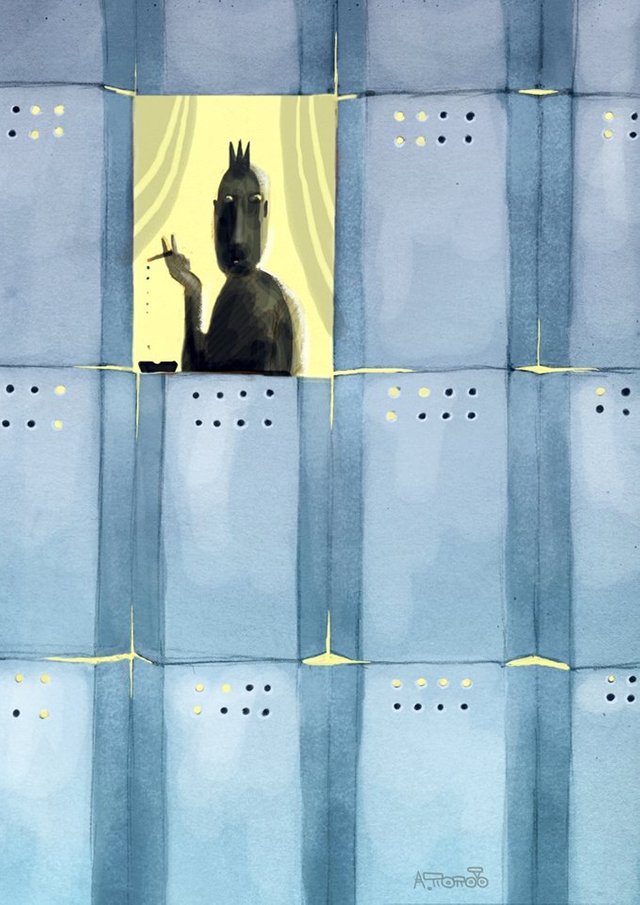
A photo of the photographer Rosbalt Alexandra Polukeyeva
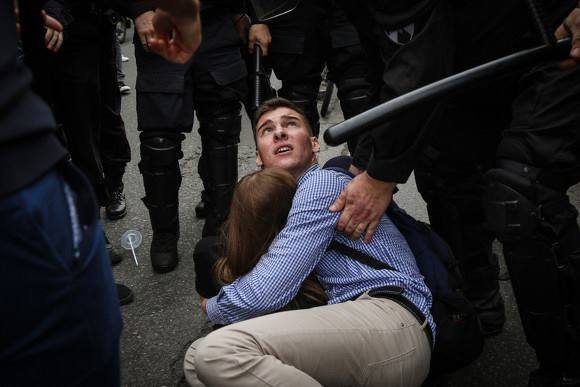
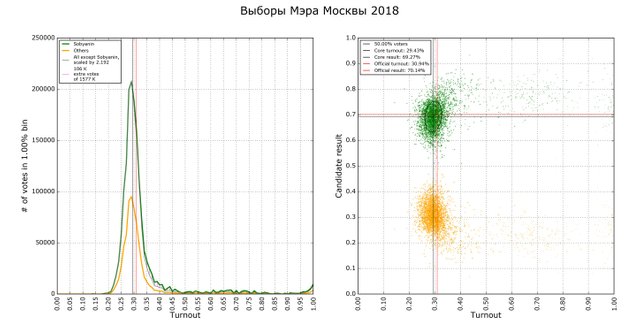
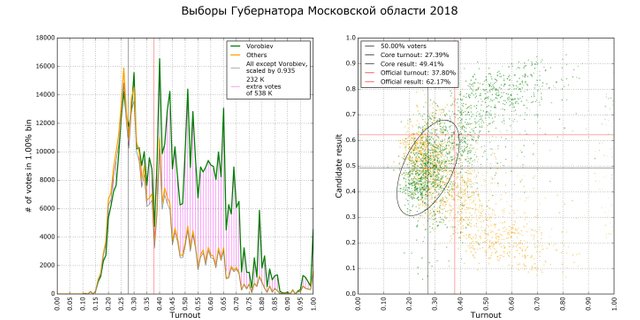
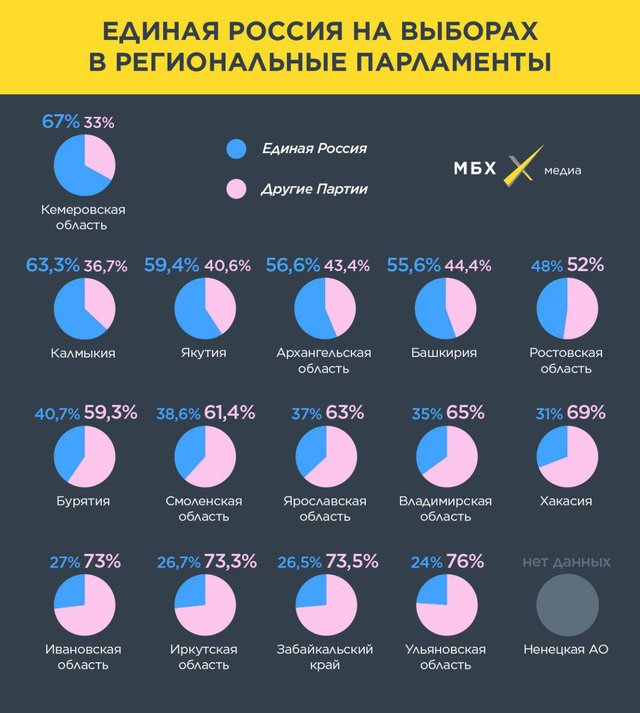
To listen to the audio version of this article click on the play image.

Brought to you by @tts. If you find it useful please consider upvoting this reply.